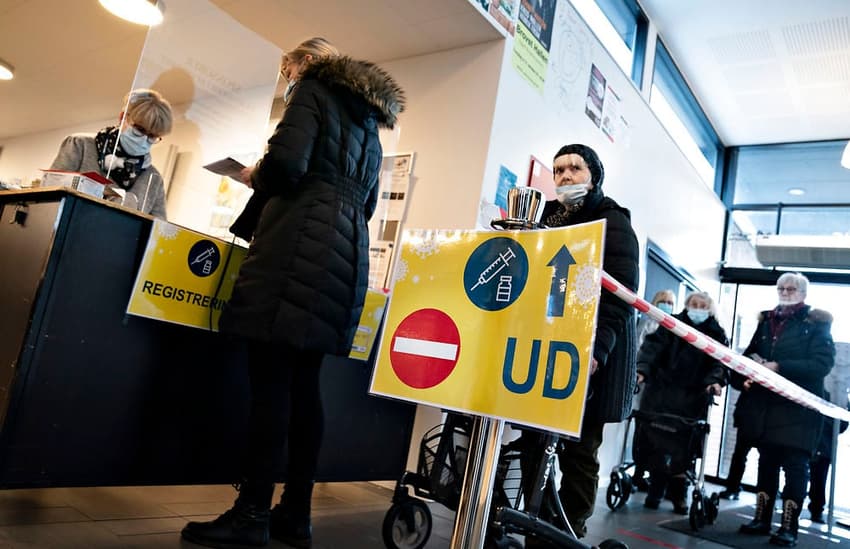Danish enthusiasm for Covid-19 jab increases after start of vaccination programme

The number of people in Denmark who want to take the Covid-19 vaccine has increased to 87 percent, according to a new survey.
The figure represents a notable increase on the 76 percent of respondents who said they wanted the vaccine in December. The country began administering vaccines to its population on December 27th.
The survey was conducted by the HOPE project and reported by national broadcaster DR. The project studies opinions and behaviour in Denmark during the Covid-19 pandemic.
The numbers are a sign that the Covid-19 vaccination programme in Denmark is well underway, according to Aarhus University political sciences professor Michael Bang Pedersen, who leads the project.
“Danes have found that there have been no major horror stories and that various side effects are the ones which were expected,” Pedersen said to DR.
“That’s why many people are standing at the back of the queue and can see that it seems to be going very well at the front of the queue,” he added.
Vaccination figures released by the health ministry on Thursday state 178,969 people in Denmark have had the first dose so far, amounting to 3.07 percent of the population.
The number of people who are undecided about the vaccine fell from 13 percent in Decemebr to 8 percent in January, the HOPE project found.
People who said they are partly or fully against following health authority advice to take the vaccine fell from 11 percent to 5 percent.
READ ALSO: Reduction in Pfizer vaccines to Denmark will impact first quarter of 2021
Comments
See Also
The figure represents a notable increase on the 76 percent of respondents who said they wanted the vaccine in December. The country began administering vaccines to its population on December 27th.
The survey was conducted by the HOPE project and reported by national broadcaster DR. The project studies opinions and behaviour in Denmark during the Covid-19 pandemic.
The numbers are a sign that the Covid-19 vaccination programme in Denmark is well underway, according to Aarhus University political sciences professor Michael Bang Pedersen, who leads the project.
“Danes have found that there have been no major horror stories and that various side effects are the ones which were expected,” Pedersen said to DR.
“That’s why many people are standing at the back of the queue and can see that it seems to be going very well at the front of the queue,” he added.
Vaccination figures released by the health ministry on Thursday state 178,969 people in Denmark have had the first dose so far, amounting to 3.07 percent of the population.
The number of people who are undecided about the vaccine fell from 13 percent in Decemebr to 8 percent in January, the HOPE project found.
People who said they are partly or fully against following health authority advice to take the vaccine fell from 11 percent to 5 percent.
READ ALSO: Reduction in Pfizer vaccines to Denmark will impact first quarter of 2021
Join the conversation in our comments section below. Share your own views and experience and if you have a question or suggestion for our journalists then email us at [email protected].
Please keep comments civil, constructive and on topic – and make sure to read our terms of use before getting involved.
Please log in here to leave a comment.